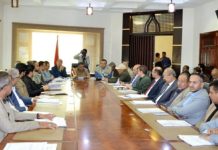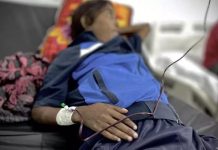Al-Thawra Net
More than 6,000 people have been killed since the conflict began – half of them civilians and more than 1,100 of them children, according to the UN. the guardian listed a timeline of six major bombardments in Yemen in 2016 by the Saudi-led coalition.
13 January
An airstrike killed at least 15 civilians near the village of Bilad al-Rus, south of Sana’a. More than 25 other people were wounded.
27 February
Coalition jets bombarded a crowded market in the Nehm district of Sana’a, killing at least 40 people, mostly civilians. At least 30 people were also reported to have been wounded.
15 March
An attack in the village of Mastaba, in Yemen’s northern Hajja governorate, killed at least 97 civilians in one of the deadliest airstrikes since the military intervention. At least 25 children were among the dead. Human Rights Watch condemned the attack at the time for causing “indiscriminate or foreseeably disproportionate loss of civilian life, in violation of the laws of war”.
9 August
The bombing of a potato crisp factory in the Nahda district of Sana’a left at least 10 people dead. It was the first airstrike by the Saudi-led coalition in Yemen since the collapse of UN peace talks in early August. Among those killed was Saddam Hussein Abdu al-Burai, a 25-year-old man who was on his first day at work.
13 August
Ten students aged under 15 were killed in an attack that hit a school in the Haydan district in the northern Saada governorate, according to Médecins Sans Frontières (MSF). On the same day, in Razih district, also in the Saada governorate, an airstrike hit the house of the school principal, Ali Okri, killing his wife, four children and relatives. The UN chief, Ban Ki-moon, condemned the bombardment and called for an investigation.
15 August
An attack on a Yemeni hospital run by MSF killed at least 11 people, including a member of charity’s staff. The facility was located in the Abs district of the Hajjah governorate in north-west Yemen. It was the fourth strike against an MSF hospital in Yemen in a year, and prompted MSF to withdraw from six facilities in northern Yemen. Juan Prieto, MSF’s head of mission in Yemen, has rejected any suggestion that its hospitals have been used for military activities.




















